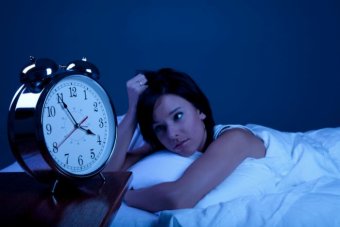
We blame technology and the pace of modern life for our inability to sleep, but new research suggests our sleep patterns have not strayed far from our paleo roots.
In a paper published in Current Biology, US researchers reveal human sleep patterns have changed little across our evolutionary history.
And rather than light being the catalyst for sleep, it appears ambient temperature plays a key role.
The findings are based on an analysis of the sleep of groups living traditional hunter-gatherer lifestyles near the equator in remote parts of the globe.
The researchers, led by Professor Jerome Siegel of the University of California, Los Angeles, found these traditional people sleep the same number of hours as those of us living in the fast-paced digital world – averaging about 6.5 hours a night.
Dr Siegel said the findings challenged the idea that sleep had been greatly reduced in the “modern world”.
It was thought humans were meant to sleep when it got dark and that this practice had been disrupted by the invention of the electric light, he said.
“The perception worldwide is that we sleep much less than humans used to,” he said.
Tracking sleep habits of hunter-gatherer societies
For the study, Dr Siegel and his colleagues tracked the sleep habits of 94 people from three preindustrial hunter-gatherer societies: the Hadza of Tanzania, the San of Namibia, and the Tsimane of Bolivia.
The researchers found actual sleep time averaged between 5.7 and 7.1 hours, and despite a lack of electricity and lights, the people stayed awake for about three hours after dark and tended to wake before sunrise.

Dr Siegel said he was surprised by the uniformity of sleep patterns across the three societies despite the groups’ geographic isolation from each other.
This suggested they were reflecting “core human sleep patterns, most likely characteristic of pre-modern era Homo sapiens,” he said.
“This has important implications for the idea that we need to take sleeping pills because sleep has been reduced from its ‘natural level’ by the widespread use of electricity, TV, the internet, and so on.”
Dr Siegel said analysis of the sleep period suggested temperature rather than light played the key role in determining sleep time.
“The sleep was occurring during the coldest period of the night and during a period when the temperature was falling between sunset and sunrise,” he said.
“When the temperature reaches its minimum and stops falling they wake up – and that is usually near sunrise.”
The role of temperature was reinforced further by participants from the San group from the Kalahari in Namibia where the temperature minimum occurred after sunrise.
“In that group they all awakened after sunrise,” Dr Siegel said.
This characteristic could have evolved to save energy by reducing the temperature difference between the body and environment and consequent heat loss.
“Being active during the late night period of lowest temperatures would be metabolically costly,” the researchers said.
Interestingly none of the traditional groups had a word for insomnia.
Dr Siegel said the study suggested temperature control could be used to treat insomnia and other sleep disorders.
“In all three groups they are sleeping during this period of falling temperature and in our homes we sleep in a fixed temperature,” Dr Siegel observed.
“For people with insomnia it is possible that having a falling temperature [in their bedroom] might be beneficial.”
‘Big leap’ to compare lifestyles
Australasian Sleep Association president Professor Nick Antic said while the researchers had taken an interesting approach, he was reluctant to embrace all their conclusions.
“To make direct comparisons with people from Western lifestyles is a big leap,” Professor Antic, from the Adelaide Institute for Sleep Health, said.
Professor Antic said sleep requirements differed with age and the National Sleep Foundation in the US had recently said 18 to 25-year-olds needed seven to nine hours sleep to perform optimally.
“The researchers haven’t shown anywhere [in the paper] that they [the traditional hunter-gatherer people] are performing well so we don’t know if the sleep [they are having] is sufficient for them to be performing optimally,” he said.
Professor Antic said there was a long association between light and the human circadian rhythm and suggested the finding on temperature was a “little bit speculative” and needed to be further investigated in controlled settings.
“Many people would believe light is a stronger factor in sleep cycles,” he said.
